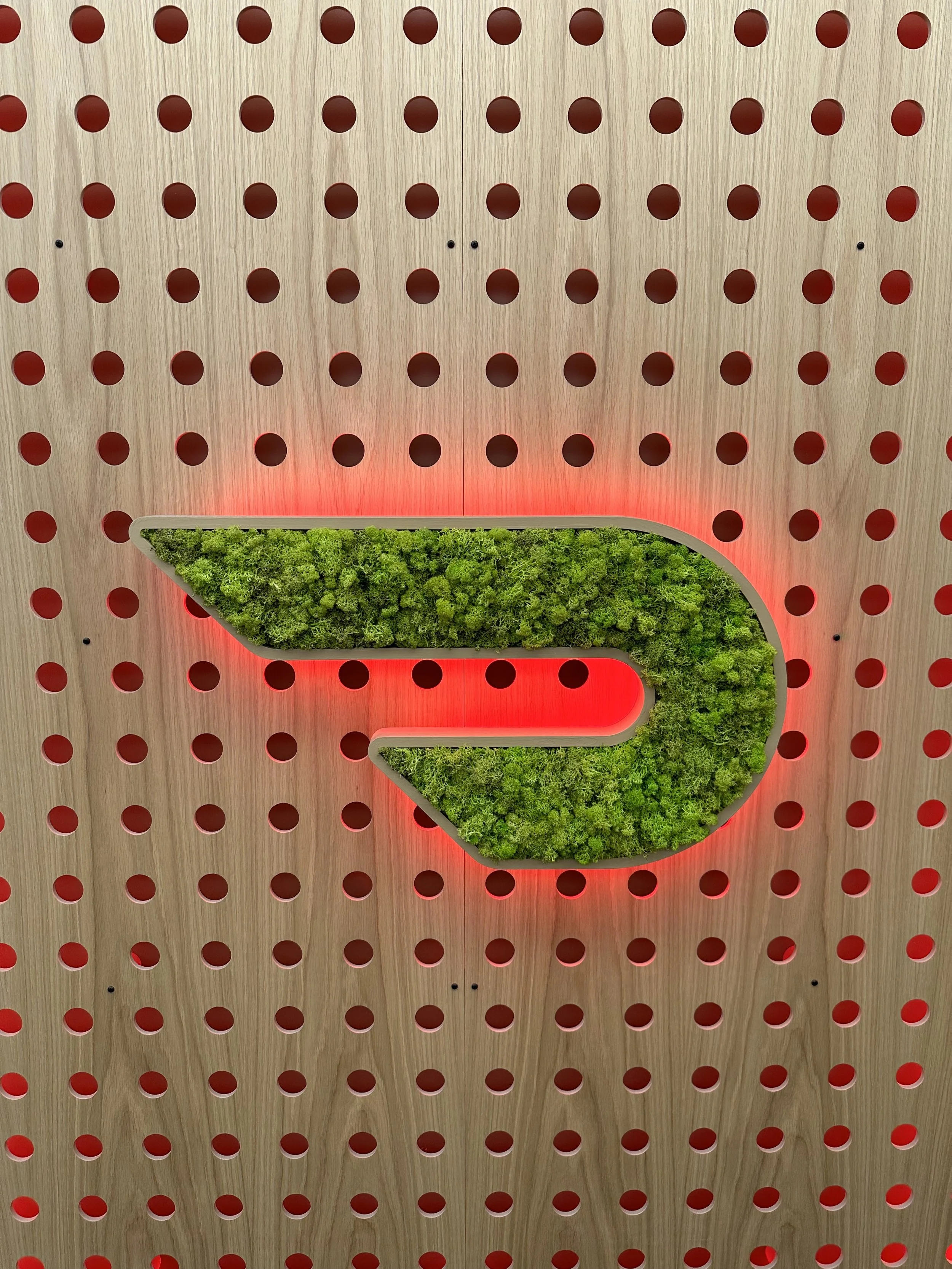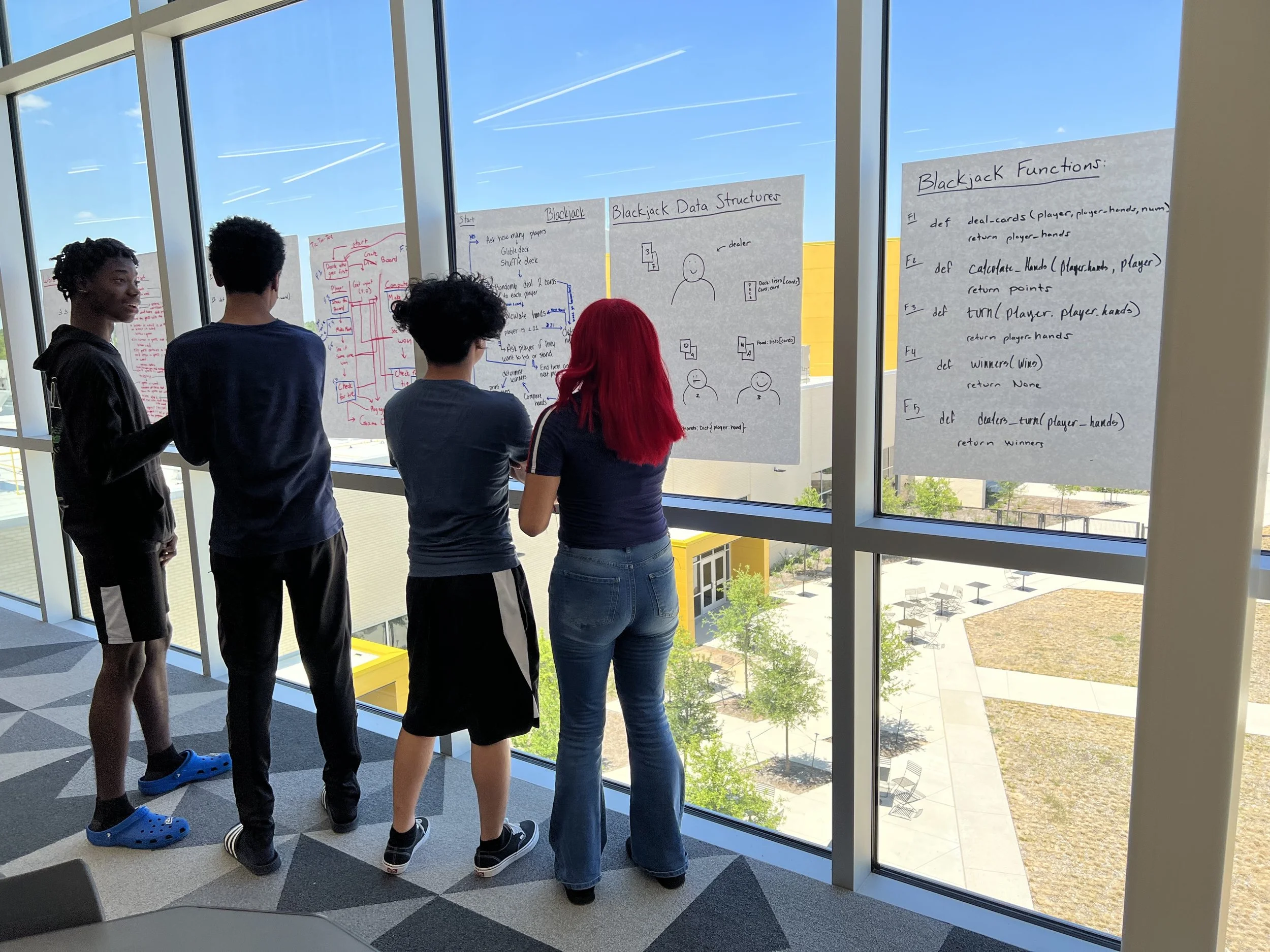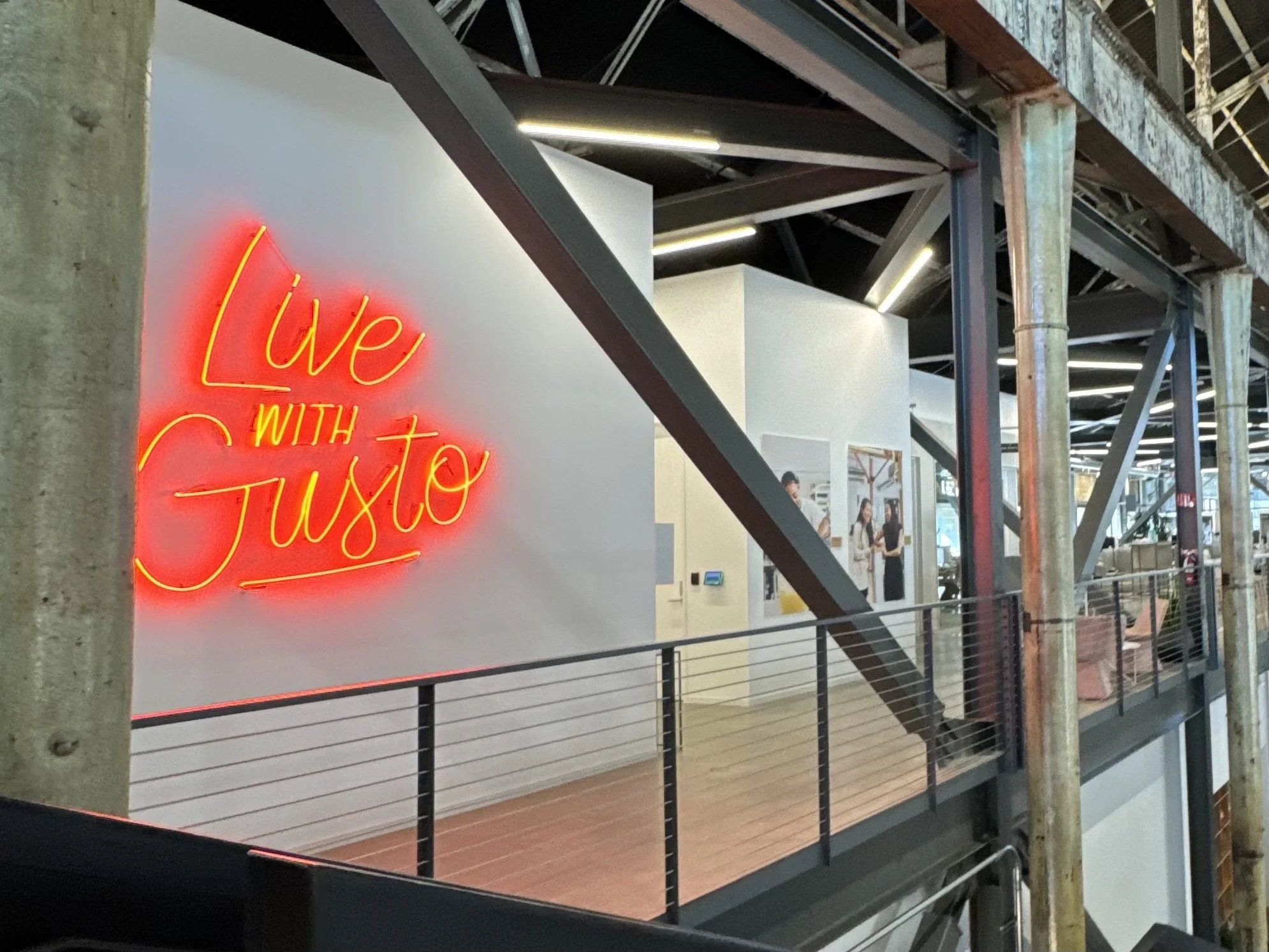Alumni Community Spotlight: Adam Valencia
The Code2040 Fellows Program establishes a pathway into the tech industry, creating lasting connections among early career Black and Latinx technologists, industry leaders, and company partners. Through the collective strength of community, our Fellows Program plays an integral role in deconstructing systemic racism within the tech sector while cultivating environments that prioritize and honor the visions, expertise and stories of Black and Latinx people.
We recently had the pleasure of connecting with Adam Valencia, a Fellows Program alum and current software engineer at Gusto. Throughout our conversation, Adam reflected on Code2040 as offering community and a powerful network of support for navigating a systemically inequitable tech industry. In our conversation, Adam shared his passion for racial justice work, especially around education and economic mobility for low-income people of color.
DoorDash logo greets Adam at DoorDash headquarters in San Francisco, CA. Photo courtesy of Adam Valencia.
Adam was born and raised in Dallas, Texas where he lived until moving to New York to attend Hamilton College. Initially, he studied chemistry, but eventually became a Computer Science major. He holds a B.A. in Computer Science with a dual-minor in Education and Mathematics. Adam completed the Fellows Program in 2021, interning with DoorDash and launching his career.
The Fellows Program’s curriculum is rooted in racial justice and recognizes that the tech industry is structured by systemic racism and white supremacy. Bridging educational experience with job outcomes, the program strives to embody the principles of racial equity in practice. Working at the intersection of tech and social justice, Code2040’s Fellows Program is an engine of economic mobility, creating a network of access to high-wage work in the tech industry. At the same time, the Fellows Program sharpens tools for advancing racial equity and establishes a lasting community, supporting Black and Latinx technologists to thrive in their careers.
Adam remembers Code2040 as a crucial site for creating community and connection among Black and Latinx technologists. As a Fellow during the peak of the Covid-19 pandemic, Adam remembers, “2021 was a year after there was a national quarantine mandate. Code2040 was also re-designing its programming at that time, and expanded the Fellows Program from San Francisco into the entire country. [Quarantine] was an isolating time, but what really helped was community: community and connection with other people hugely impacted people’s experience in the pandemic and safeguarded mental health. What I valued most was the space held for students to express anything they felt they might need. Being part of the Code2040 community helped me anchor my progress and expectations in reality. It was okay to take breaks; it was okay not to grind 24/7 on leetcode; it was okay to breakdown and feel the pain. It was easy to be swept up by all the things we COULD be doing. I remember an overwhelming feeling of ‘not doing enough.’ Because, at the end of the day, it’s really hard to focus on tech when you’re worrying about the next stimulus check, and how you and your family are going to make it through the pandemic. The Fellows Program taught me to, ‘Show up how you can.’ The space to be real about how I was doing contributed to feeling more willpower and sustained my continued work in tech and education.”
The Fellows Program offers Computer Science majors an opportunity to develop a social and political analysis of technology while practicing the skills needed to radically transform the tech industry. Adam continues to volunteer with the Fellows Program, and reflected on his long-standing commitment to education as a social justice issue, “While I was an undergraduate at Hamilton College, I studied closely with Chenyu Wang. She revolutionized the way I think, how I view myself, and my work. She inspired me to get involved in education. Code2040 is a powerful intermediary between education and tech, and it connects my passions.”
High School students work through BlackJack coding functions during the Projects for Peace summer Computer Science program. Photo courtesy of Adam Valencia.
Inspired by Wang’s teaching and equipped with the language to name how systems of power operate alongside his racial equity advocacy training with Code2040, Adam applied for a Projects for Peace grant. Adam describes the project as rooted in the understanding that “we cannot have peace without interacting with racial equity. The project focused on educating students about how to interact with technology in an increasingly technology-oriented world.” Adam was awarded the $10,000 grant, and offered high school students a social justice-oriented computer science curriculum, creating a pathway for students to both develop and build confidence in their coding skills while also fostering an analysis of the ways tech shapes and perpetuates inequities. Upon completing the final project, which included coding a gaming program and designing a website, students received a certificate and an iPad, allowing them to continue the work they had started together outside of the classroom. Adam prioritized lasting outcomes in designing the course, “People say that knowledge is power, and it is, but knowledge alone is not enough. This school was also in a low-income neighborhood in Dallas, and a lot of the students I worked with were Black and Brown children of immigrants. The most important thing about the program was how to use tech to act as an equalizer, and I wanted the students to have tangible takeaways.”
Code2040 provides a compass and community as Fellows complete their degrees and begin their careers. Adam recalls the challenges of being one of very few BIPOC students in CS, “early into my Computer Science Major, I was talking with an upperclassman and Code2040 alum about my frustrations, and he suggested I connect with Code2040. Joining Code2040 is how I got into my stride. I found my community. I found people across the nation, even in tech centers like San Francisco, facing similar struggles. Those connections and relationships are really what allowed me to pursue CS through the degree and into a career that I really want.”
“Live with Gusto” neon sign in the Gusto office, San Francisco, CA. Photo courtesy of Adam Valencia.
As Adam named, “my racial equity advocacy training shaped the kind of workplace I want to be a part of. As a result of my work with Code2040, I have clarity about the kind of work I want to do, and about where my passions live. I want to work with products and be able to see directly how we are impacting people. I also want to work with people. My experiences with Code2040 also informs the kinds of questions I ask myself regularly in my work to make sure what I’m doing is values aligned, 'how will this effect people like me, how do I safeguard my mental health, how do I make sure I’m not just focused on generating capital for the company, but that I’m also focusing on my people?’ My priorities include empowering Black and Brown people to enter tech and to think about racial equity topics. I feel committed to work that empowers people. I say empowered specifically because I believe people really need to feel empowered to make an impact. Empowerment was a huge takeaway my year of the Fellows Program.”
Being in community together creates a network of influence, power and support that lasts beyond our work together. Since completing the program, Adam has continued his work on racial equity in tech. “I do a lot of introspection on racial equity in tech. It’s a tough act to juggle both your professional career and how to advance the people around you. Code2040 makes me feel empowered to make that change.”
We are so grateful for our Alumni and their continued commitments to racial equity advocacy. Thank you, Adam, for being a part of our community!




